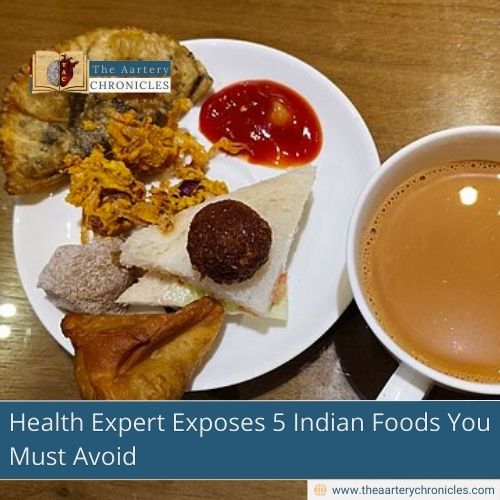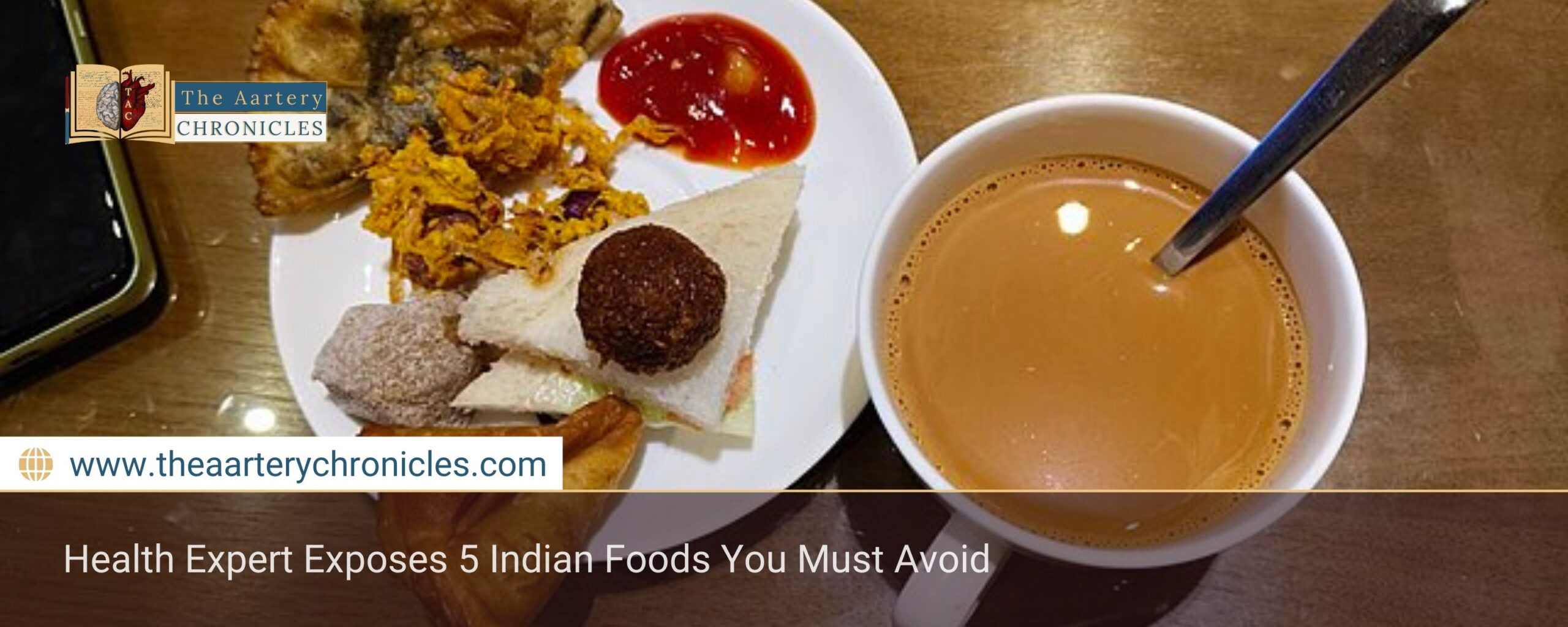

Health Expert Exposes 5 Indian Foods You Must Avoid
Many of us believe that the food we eat daily is harmless, but according to nutritionist Suman Agarwal, some of the most loved Indian snacks can actually harm our health in the long run. Speaking on The Masoom Minawala Show, she listed five common Indian foods you should stop eating not only because they lack nutrition, but also because they may contribute to serious health problems.
1. Papad – The “Worst Offender”
Suman Agarwal didn’t hesitate to call papad the worst food choice. Despite being light and crunchy, papad contains very high amounts of sodium and soda (saji), along with hidden fats. Even roasted papads are not as healthy as people think, because the way they are prepared still leaves them high in salt and low in nutrition.
She explained that papad is basically “empty calories” and can be particularly difficult to digest in hot and humid climates. Over time, frequent consumption can stress the digestive system and raise risks linked to high sodium intake.
2. Bhujia – A Salty Obsession
Next on the list is bhujia, a snack that many Indians reach for daily. Despite its popularity, Agarwal pointed out that bhujia offers little nutritional value. It is deep-fried, calorie-dense, and loaded with salt and refined ingredients. Eating it regularly can lead to weight gain, unhealthy cholesterol levels, and an increased risk of lifestyle-related diseases.
3. Samosa – A Deep-Fried Delight with Hidden Dangers
The much-loved samosa is another food that should be avoided. While its crispy, golden exterior makes it tempting, the combination of refined flour, fried potatoes, and oil makes it a high-calorie indulgence. Agarwal explained that samosas are not only fried in unhealthy fats but also made with ingredients that add little to no nutrition. As a result, they contribute to acidity, bloating, and excess fat accumulation in the body.
4. Jalebi – A Sugar and Oil Overload
When it comes to desserts, jalebi is one of India’s most iconic sweets. However, it is made from refined flour, fried in ghee or oil, and then soaked in sugar syrup. This triple combination of refined carbs, sugar, and fat makes jalebi extremely acidic and harmful for regular consumption. Agarwal admitted that while many people (herself included) love jalebi, it is one of the most unhealthy desserts for blood sugar balance and digestive health.Teachers will also observe a “Black Day” and organise a silent march from Ramleela Ground to the Sub-Divisional Magistrate’s office. Their main demand is stronger protection for teaching staff inside schools.
5. Supari (Betel Nut) – Addictive and Harmful
Finally, Agarwal warned against supari, or betel nut, which is still consumed widely across rural and semi-urban India. While it may seem harmless, supari is not only addictive but also has long-term health risks. She explained that frequent consumption is linked to reduced iron levels in the body, leading to anaemia and weakness. Once iron deficiency sets in, it is difficult to reverse, making supari particularly dangerous.
Conclusion
Nutritionist Suman Agarwal’s message is clear: these five common Indian foods you should stop eating — papad, bhujia, samosa, jalebi, and supari may be tasty, but they bring little nutrition and a lot of health risks. Instead of relying on these snacks, she suggests choosing foods rich in natural fiber, vitamins, and minerals to support overall well-being.
Source: Inputs from various media Sources
I’m a pharmacist with a strong background in health sciences. I hold a BSc from Delhi University and a pharmacy degree from PDM University. I write articles and daily health news while interviewing doctors to bring you the latest insights. In my free time, you’ll find me at the gym or lost in a sci-fi novel.
- Priya Bairagi
- Health News and Updates,People Forum
- 23 August 2025
- 15:00








